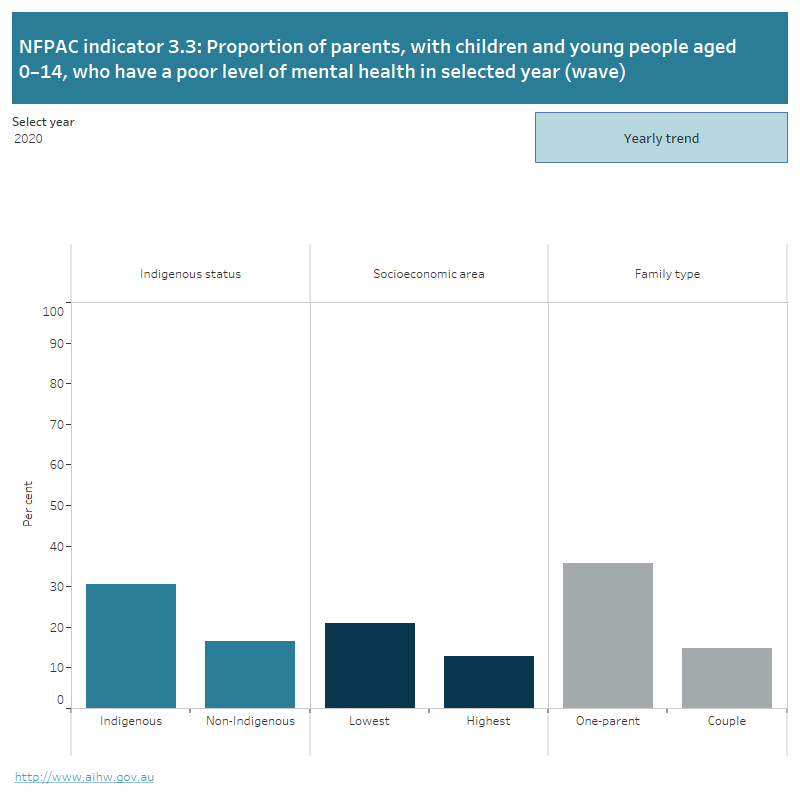3.3 Parental mental health
Children living with a parent with a mental health problem may face additional developmental challenges and health problems, and are more likely to experience a psychological disorder during adolescence or adulthood.
The Household, Income and Labour Dynamics in Australia (HILDA) Survey measures mental health using the SF-36, a 36-item survey that measures eight domains of subjective health. Scale scores for each of the eight health domains can be summarised to produce a single measure of mental health: The Mental Health Component Summary (MCS) Score. This indicator presents data for parents with an MCS score of less than 41, which is indicative of a poor level of mental health.
Trend data: For all indicator displays, the yearly trend is limited to indicators with 3 or more years (including the current year) of comparable time series data. To see the trend click on “Yearly Trend” button on the display. Where 3 or more years of comparable data including the most recent year is not available, a “No time series data” message is shown on the display.
The first figure is a bar graph showing the proportion of parents with children and young people aged 0–14 who have a poor level of mental health by Indigenous status, socioeconomic area and family type. Data can be selected from 2009 to 2020.
The second figure is a line graph showing the proportion of parents with children and young people aged 0–14 who have a poor level of mental health from 2009 to 2020. Data can be selected by Indigenous status, socioeconomic area and family type.

Source: AIHW analysis of Household, Income and Labour Dynamics in Australia (HILDA) Survey
See the supplementary data tables for further information and footnotes about these data.
Indicator technical specifications
The information below provides technical specifications for the summary indicator data presented in the quick reference guide.
| Definition | Data source | |
|---|---|---|
| Numerator |
Number of parents who have a mental health problem and have co-residents dependent children aged 0-14 years |
Household, Income and Labour Dynamics in Australia (HILDA) Survey |
| Denominator | Number of parents with co-residents dependent children aged 0-14 years | Household, Income and Labour Dynamics in Australia (HILDA) Survey |
Explanatory notes
The HILDA Survey measures mental health using the SF-36—a 36-item survey that measures eight domains of subjective health. Scale scores for each of the eight health domains can be summarised to produce a single measure of mental health: The Mental Health Component Summary (MCS) Score. An analysis of population averages suggests that an MCS score of less than 41 is indicative of a poorer level of mental health. As such, this indicator reports parents with a 'mental health problem' as those with an MCS score of less than 41.


